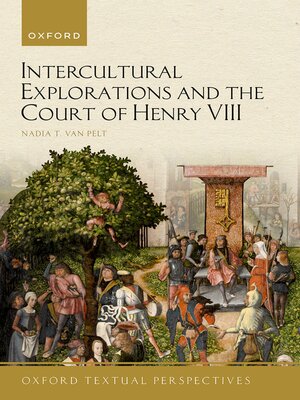Intercultural Explorations and the Court of Henry VIII
ebook ∣ Oxford Textual Perspectives
By Nadia T. van Pelt

Sign up to save your library
With an OverDrive account, you can save your favorite libraries for at-a-glance information about availability. Find out more about OverDrive accounts.
Find this title in Libby, the library reading app by OverDrive.



Search for a digital library with this title
Title found at these libraries:
| Library Name | Distance |
|---|---|
| Loading... |
Seldom has a royal court invited such intensive study as that of Henry VIII, or become so prominent in popular culture. Nonetheless, Intercultural Explorations and the Court of Henry VIII is committed to offering a fresh perspective on Tudor court culture, by using continental sources to contextualize, nuance, and challenge long-held perspectives that have been formed through the use of well-studied, Anglophone sources. Using a wide variety of textual sources, from ambassadorial correspondence, account books, household étiquettes, legal records, royal warrants, and marital contracts, to play texts and travel accounts, this study presents original research in history, literature, and cultural history. The case studies in Intercultural Explorations and the Court of Henry VIII address specific questions that challenge what we know or think we know about Tudor court culture. For example: was it good taste to bring a jester to a royal deathbed? Was John Blanke really the first black musician to perform at the Tudor court, or did he follow the footsteps of another celebrated performer of African descent? When Charles V came to meet Henry VIII, did he eat from his own plate? And why did courtiers express themselves negatively about Anne of Cleves's appearance? By addressing such specific questions, Intercultural Explorations and the Court of Henry VIII will show that however quintessentially 'English' Henry VIII's court, it was essentially a place of cultural and intercultural encounters that is best understood when studied in dialogue across languages, geographical barriers, and scholarly disciplines.







